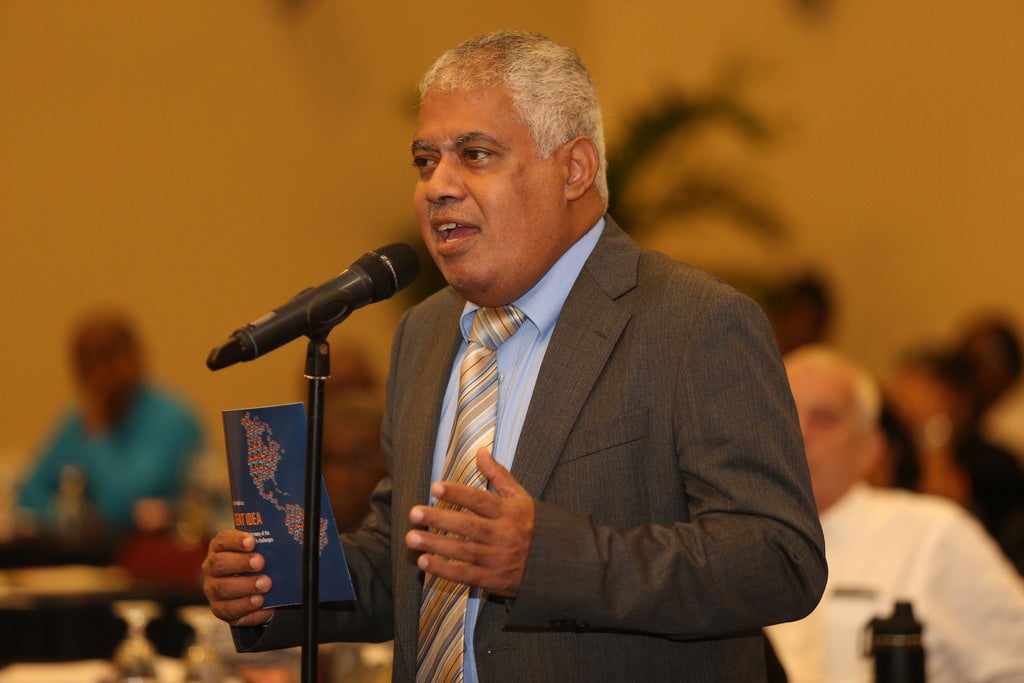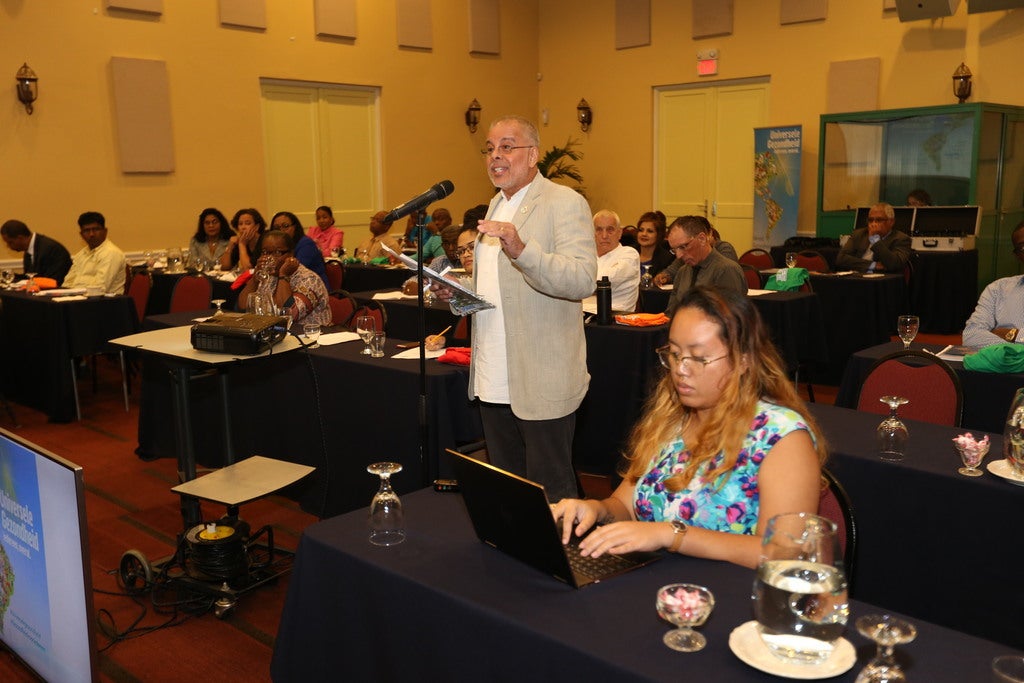
Paramaribo, Suriname, 17 April 2019 (PAHO)—As part of the World Health event, PAHO/WHO for Suriname in collaboration with the Ministry of Health of Suriname held a meeting to present the results of the fiscal space study for health and wellbeing in Suriname to high level decision makers. The aim of the meeting was to foster a dialogue between leaders in the health and finance sectors as well as lawmakers and other stakeholders. The meeting was held on 5 April 2019.
All countries in the Region including Suriname are committed to working on the implementation of a road map for Universal Health. Within this effort, health financing is critical since a minimal level of resources should be allocated to the health sector. This effort should be reflected in a fiscal prioritization of health observed as an incremented weight of public health spending as a proportion of total public spending. The goal of public expenditure on health equivalent to 6% of GDP is advocated by PAHO, as a useful benchmark in most cases. In this regard PAHO has been requested by the Ministry of Health Suriname to support the analysis of potential sources to increase public investment in health that could be considered as policy options to sustain achievements in the direction of Universal Health, including priority programs in Suriname. As part of the technical cooperation work of PAHO on fiscal space for health, a study on fiscal space for health was undertaken (see pdf in English and in Dutch).
Goal and Objective of the Study
The study aims at conducting an assessment of fiscal space for health in the country, understanding fiscal space as the availability of resources to finance an increase in public spending without compromising the sustainability of the government's financial position or the stability of the economy. The ultimate goal of the study is to inform decision makers on the issue and to serve as an input in the dialogue between different actors, specially between the Ministries of Health and Finance, on the need to increase and improve financing with equity and efficiency. The main objective is to identify the possible sources of additional financial resources for the government to allocate to health. Juan Pablo Pagano, international consultant health economics and financing of PAHO/WHO presented the main results of the Fiscal Space Study and its findings. In terms of health expenditure, the latest official data available show a total health expenditure of 5.7% of GDP and a public expenditure in health of 2.9% of GDP, both well below the average of the Region (7.4% and 4.2% respectively).
Furthermore according to the study Suriname shows a total fiscal capacity of 24.8% of GDP, with a fiscal priority for health of 11.8%. In the case of fiscal priority to health, the country again is below the average of the Region (13.6%) without even reaching an international benchmark of 15% set as a target for African countries in the Abuja Declaration of 2001.
Imperative to increase and optimize public financing for health
The study mentions the PAHO´s strategy for Universal Health where it is written, that it is imperative to “increase and optimize public financing for health in an appropriate, efficient, sustainable, and fiscally responsible manner in order to expand access, reduce health inequities, increase financial protection, and implement efficient interventions”. Also, a public expenditure on health equivalent to 6% of GDP is a useful benchmark in most cases and is a necessary –though not sufficient– condition to reduce inequities and increase financial protection within the framework of universal access to health and universal health coverage. Current times in Suriname are proving challenging for the government to advance in this direction, highlighting the need to assess potential sources of funds for the health sector, taking into consideration Suriname’s context.





